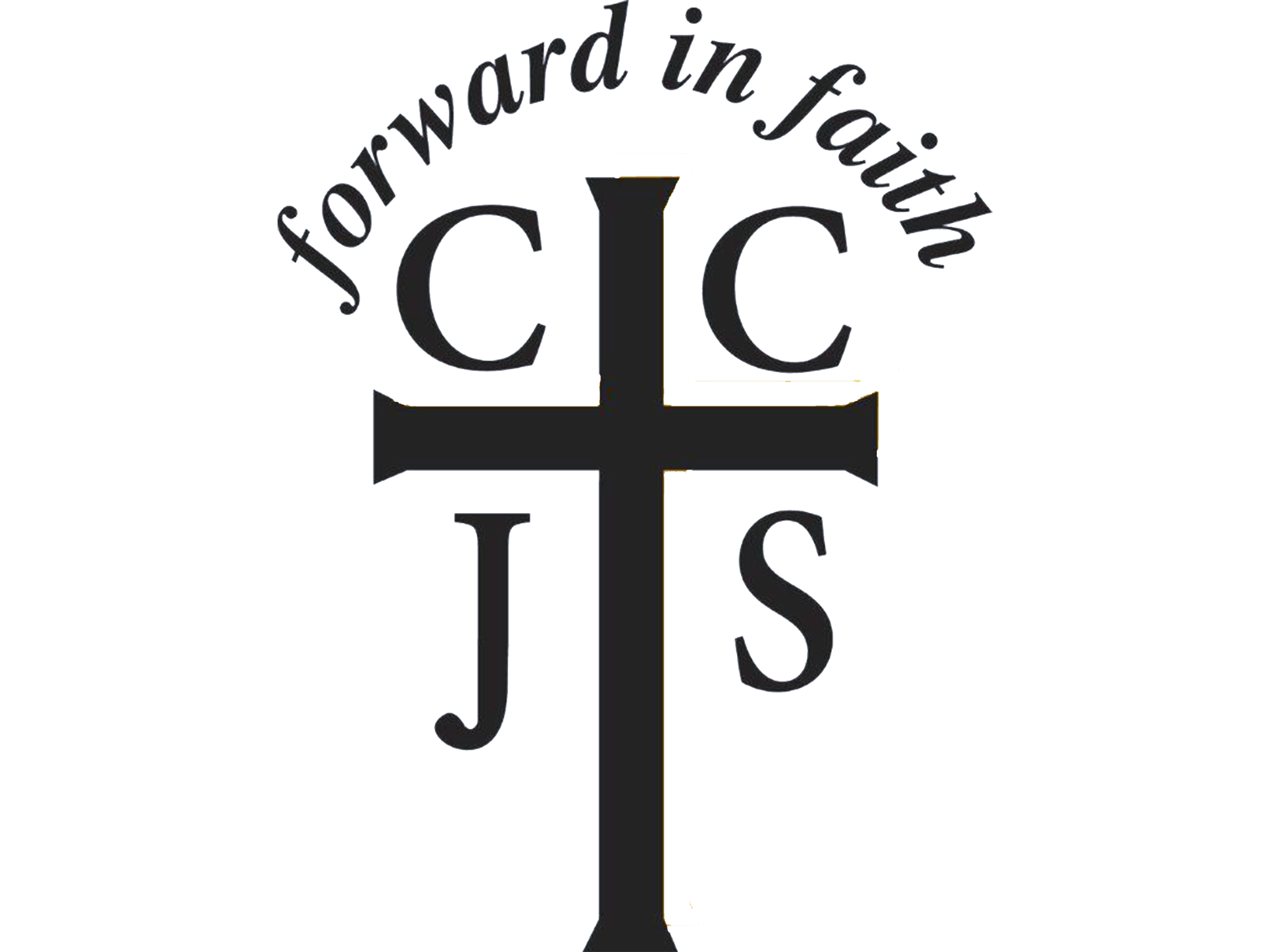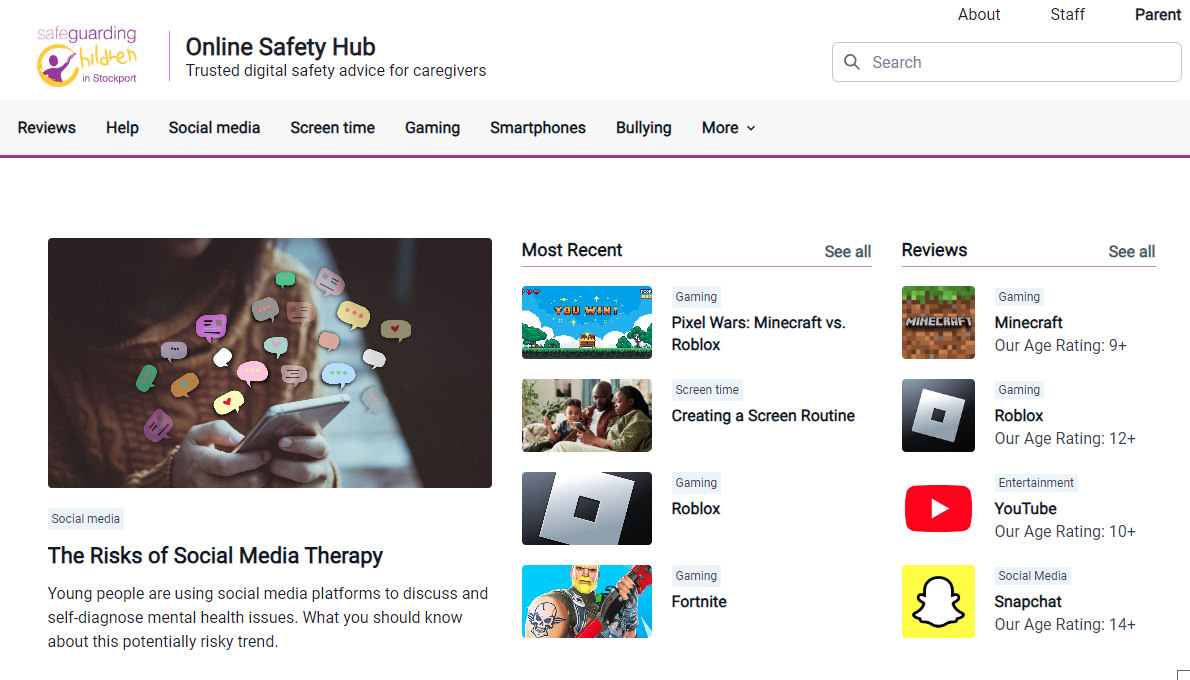
Cheadle Catholic Junior School
Online Safety
Supporting the wellbeing of children has never been more critical than it is right now. Parents, teachers, governments and policy makers are more focussed than ever on ensuring that children are protected from online harms.
The wellbeing outcomes of children are heavily influenced by their digital experiences. A child’s online activity, including what they view, who they interact with, and what they share can contribute to a deeply positive outcome, or pose a worrying threat to their wellbeing.
To help your child get the best from technology, we want to help parents to develop the skills and knowledge that is needed to achieve this. The Stockport Online Safety Hub , launched in September 2024, is a fabulous resource for parents and carers.

The Hub is designed to engage and align the community on online safety and wellness by providing up-to-date and evidence-based information to all key stakeholders of a child’s life.
Parents will find a rich library of helpful resources, including app reviews, how-to guides and advice on an array of online safety topics.
Tips for staying safe online:
- Make sure you keep new online friends strictly online. If someone you don't know asks to be your online friend you must ensure an adult knows about it.
- Know how to use the CEOP Button and how to report it to the CEOP Centre if you are concerned about someone’s online behaviour towards you.
- Talk to your child about what they’re up to online. Be part of their online life: find out what sites they visit and what they love about them. If they know you understand they are more likely to come to you if they have any problems.
- Watch Thinkuknow films and cartoons with your child.
- Encourage your child to go online and explore! There is a wealth of age-appropriate sites online for your children. Encourage them to use sites which are fun, educational and that will help them to develop online skills.
- Keep up-to-date with your child’s development online. Children grow up fast and they will be growing in confidence and learning new skills daily. You need to keep up!
- Set boundaries in the online world just as you would in the real world. Think about what they see, what they share, who they talk to and how long they spend online.
- Keep all equipment that connects to the internet in a family space. For children of Primary School age, it is important to keep internet use in family areas so you can see the sites your child is using and are aware if they see something they don’t want to see.
- Know what connect to the internet and how. Nowadays even the TV connects to the internet. Be aware of which devices that your child uses connect to the internet, such as this will affect whether the safety settings you set are being applied.
- Use parental controls on devices that link to the internet, such as the TV, laptops, computers, game consoles and mobile phones. Parental controls are not just locking and blocking, they are a tool to help you set appropriate boundaries as your child grows and develops. They are not the answer to your child’s online safety, but they are a good start and they are not as difficult to install as you might think.
7-9’s Checklist
- CREATE a user account for your child on the family computer with appropriate settings & make the most of Parental Controls & tools like Google Safe Search
- AGREE a list of websites they’re allowed to visit & the kind of personal information they shouldn’t reveal about themselves online (like the name of their school or their address)
- DECIDE time limits for things like using the internet & playing on games consoles
- BEAR in mind what older siblings might be showing them on the internet, mobiles, games consoles & other devices & agree some rules as a family
- TALK to other parents about their views & don’t be pressured by your child into letting them use new technologies
10-12’s Checklist
- MAKE sure you’ve set some tech boundaries before they get their first mobile or games console – once they have it in their hands it can be more difficult to change the settings
- REMIND your child to keep phones, etc well hidden to minimise the risk of theft
- TALK to them about what they post & share online – written comments, photos & videos form part of their digital ‘footprint’ & could be seen by anyone & available online forever
- DISCUSS the kind of things they see online – they might be looking for more information about their changing bodies & exploring relationships for example
- HOLD the line on letting your child sign up for services like Facebook & YouTube that have a minimum age limit of 13
We believe that internet safety education is a crucial element of the curriculum and an essential part of young people’s development. Please visit the following sites to help enable you to strengthen and reinforce the safety messages that your children receive in school, in your home environment.
For advice on how to help your child use the internet safely, click on the following documents:
@NationalOnlineSafety 'What Parents Need to Know' guides
- 10-tips-to-keep-children-safe.pdf
- parent-guide-to-cyberbullying.pdf
- parent-guide-to-fortnite.pdf
- parent-guide-to-fortnite-battle-royale.pdf
- parent-guide-to-instagram.pdf
- parent-guide-to-tiktok.pdf
- parent-guide-to-trolling.pdf
- parent-guide-to-whatsapp.pdf
- c4065ea9eceeb022c4c09757641ffd82.pdf
-
CEOP
Helpful links to look at with your family
-
Think You Know
Age 5 - 7
-
Think You Know
Age 8 - 10
-
Think You Know
Age 11 - 13